recent
Agnès Bun's Invincible Summer
Bun’s frankness about her own frailties lends her reporting the credibility and moral authority of honesty—the authenticity with which she writes closes the distance between journalist and reader, and her videos transport us into the world she covers.
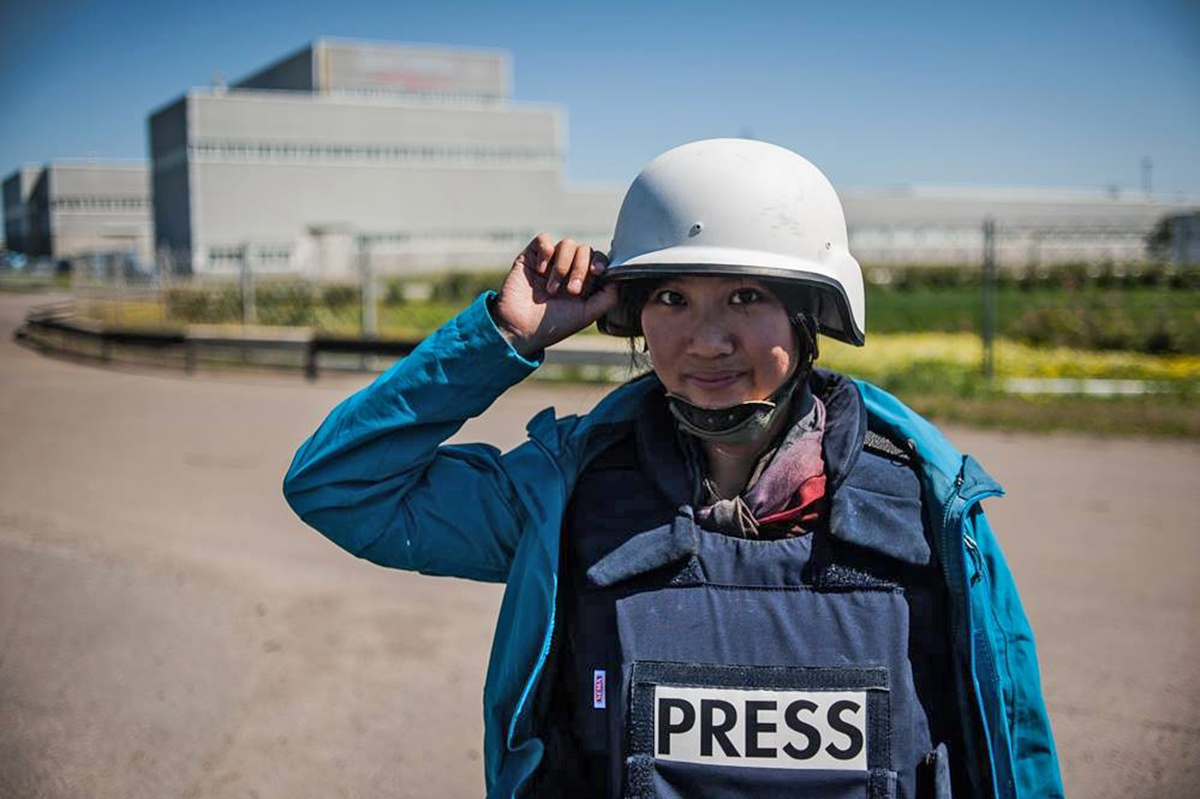
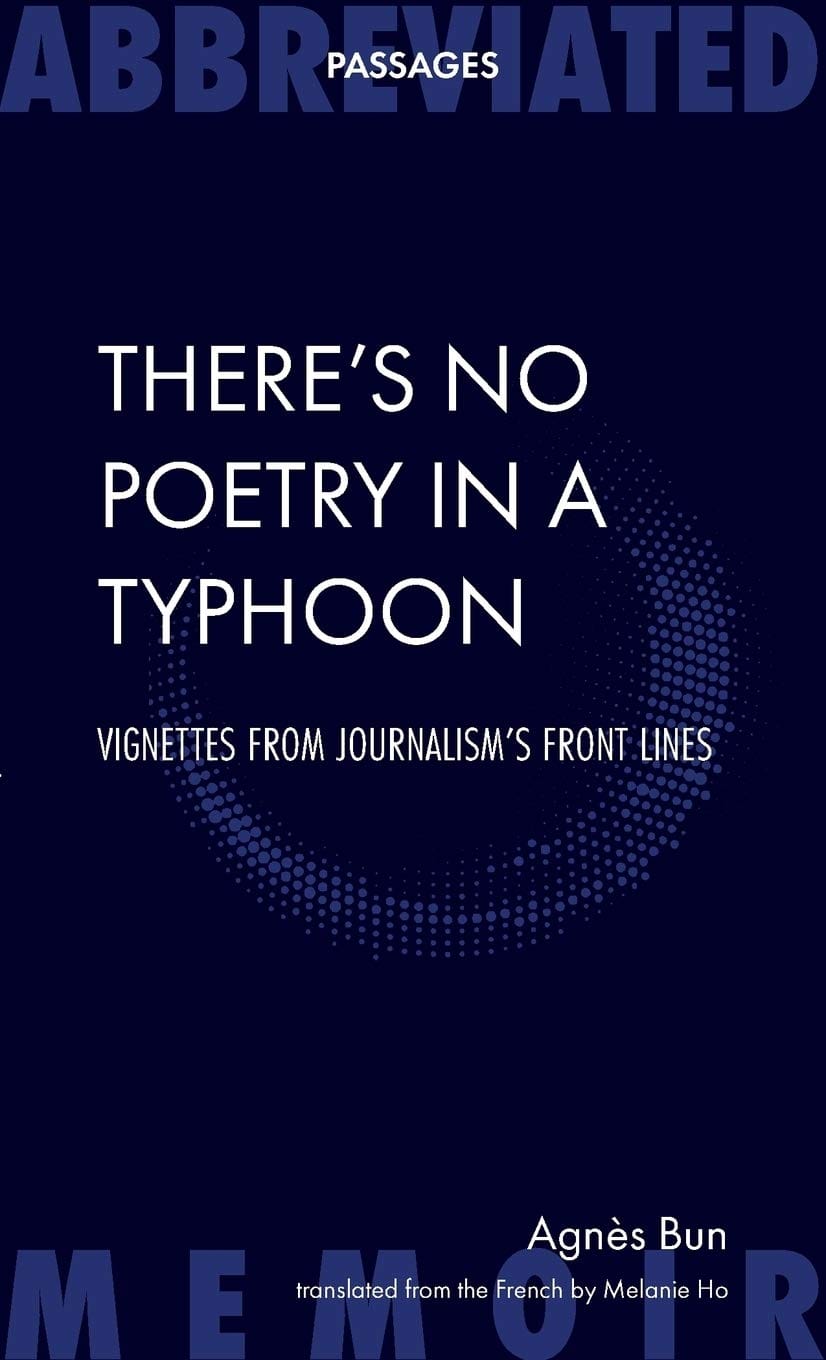
Meeting Agence France-Presse photojournalist Agnès Bun is a disarming experience. She looks younger than her age, but her youthful appearance belies an intensity forged in her frequently dangerous and sometimes harrowing line of work. As we talked about her career and her reluctant memoir, There’s No Poetry in a Typhoon (translated from the French by Melanie Ho), she spoke quickly and wasted few words, which made our interview a challenge and a pleasure.
What is a reluctant memoir? It’s one written as a result of benevolent pressure from her peers and admirers, who implored her to aggregate a series of blog posts she had written for the AFP website about her experiences in the field. Eventually, she agreed but she hasn’t looked back since. “I wrote most of the chapters in one go,” she says, “and I haven’t reread it since it was published.” She isn’t the type of person to be detained by self-aggrandizement—she seems to be endowed with more humility than egoism. Instead, she reports and moves on. But sometimes her work leaves scars from the past—bloody slices of tragedy that have stained her conscience and left her torn between wanting to forget and needing to remember.
Some of her reporting has been enjoyable, such as her stint covering of the Winter Olympics in PyeongChang. But her elegant memoir also recounts her inglorious, perilous, heartbreaking, and occasionally fetid assignments, which reveal her palpable sensitivity to the plights of others. The book offers a collection of glimpses into the world of someone who reports on lives lived on the edge of hopelessness, in warzones and refugee camps and the devastated sites of natural disasters. Her prose is intelligent and direct as her training as a journalist would demand, but it also yields a poetic sensibility: “The sun kissed the hillsides, the sea, the people, my face; it was sweet and beautiful.”
Bun’s work ethic is the product of many influences, not least among which is her family, but none of which is the single locus of her motivation. She is principled but self-deprecating, and admits to feeling that she has yet to really help anyone. However, others seem to recognize something in her that she doesn’t sense about herself. “It seems whatever I originally turn down turns out to be good for me.” She originally turned down the offer to work in Asia for AFP.
Her job is frequently a difficult one, but Bun refuses to complain about its hardships. “My work is a privilege,” she says, “and even though there are tears and heartache, I would do it again.” She has a way of connecting with people who are normally reluctant to speak to the press. “People aren’t used to a journalist who admits to knowing nothing. I simply turn on the camera and say, Hey, tell me what’s happening here. Tell me your story.” Of a woman she met in Nepal after the earthquake in 2015, Bun says, “Years later, I don’t remember the number of victims but I remember the sidelong glance of her eyes, her swallowed sobs and a sadness that shriveled as it strove to express itself.”
Bun’s parents escaped the Khmer Rouge in the 1970s—some of her family members were tortured in Cambodia. Although she would be born in France, Bun also escaped too in a sense. Had she been raised in Cambodia, she says, “by now I’d be married with fourteen kids.” Her Asian features were a source of anguish as she was growing up in Europe. “I was teased but wanted to be accepted. When I was assigned by AFP to live in Hong Kong, I could finally walk down the street without feeling like an outsider, yet I remained French at heart. Because of these things, I’ve always struggled with identity.” However, the complicated attitude to her own identity has helped her to connect with people in situations where they too are unsure.
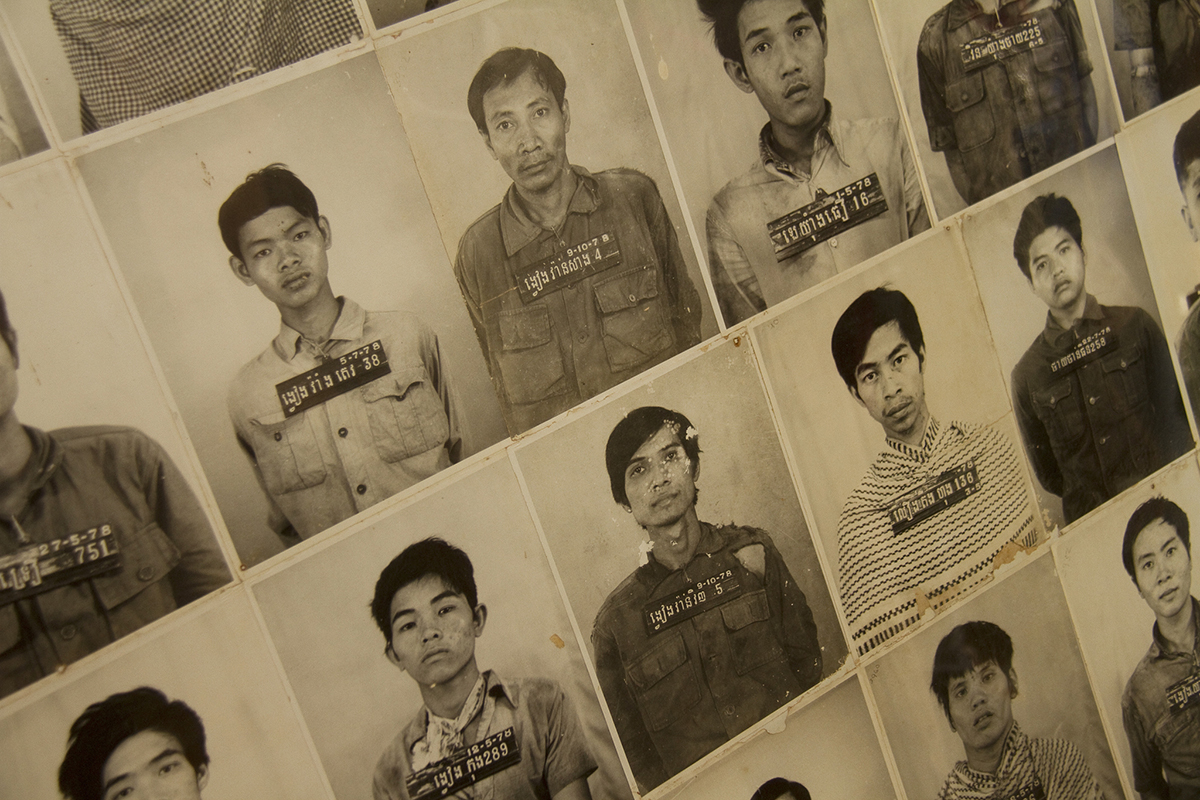
The unfolding Rohingya crisis has only recently attracted the attention of the Western media, but it has been fermenting in various forms since before WWII. The current iteration of the crisis began in 1982, when Myanmar’s government conducted its first census in decades but did not include the Rohingya people, a Sunni-Muslim minority group, effectively rendering them stateless. On August 25, 2017, a series of attacks were conducted by a Rohingya insurgency group, the ARSA against 20 police posts. The reprisals by the Myanmar army were swift and devastating. They burned and looted villages, slaughtering thousands including children, and gang-raped or sexually assaulted countless Rohingya women. By October 23, an estimated 600,000 refugees had arrived in Bangladesh. Most adults arrived with only their children—those they hadn’t lost while fleeing—and a few items of clothing. When the UN described the persecution of the Rohingya people as ethnic cleansing, the AFP assigned Agnès Bun the unenviable task of reporting from the refugee camps in Bangladesh.
The stories Bun reported from the camps are stark and might have crushed her faith in humanity. “I’ve seen videos of Buddhist monks in their robes beating people with sticks,” she recalls. “As a Buddhist myself, I was appalled by what I saw.” Her story reminded me of a line from Cormac McCarthy’s novel Blood Meridian; “Men of god and men of war have strange affinities.” She spoke with people who had never been offered the chance to speak about their plight. Many of them wept before her camera. “They had never asked each other how they felt, because they knew what the other refugees were experiencing. But when I asked them, it all poured out of them.”
Bun’s frankness about her own frailties lends her reporting the credibility and moral authority of honesty—the authenticity with which she writes closes the distance between journalist and reader, and her videos transport us into the world she covers. She doesn’t preach or presume to judge us for how we respond. Speaking of her time in Ukraine, she recalls the naiveté with which she thrust herself into a dangerous situation in rebel territory, and how she then burdened a stranger with responsibility for her safety: “During our first meeting, I also read in his eyes and on his pale face a fear for me and for the new responsibility that had just fallen on his shoulders.”
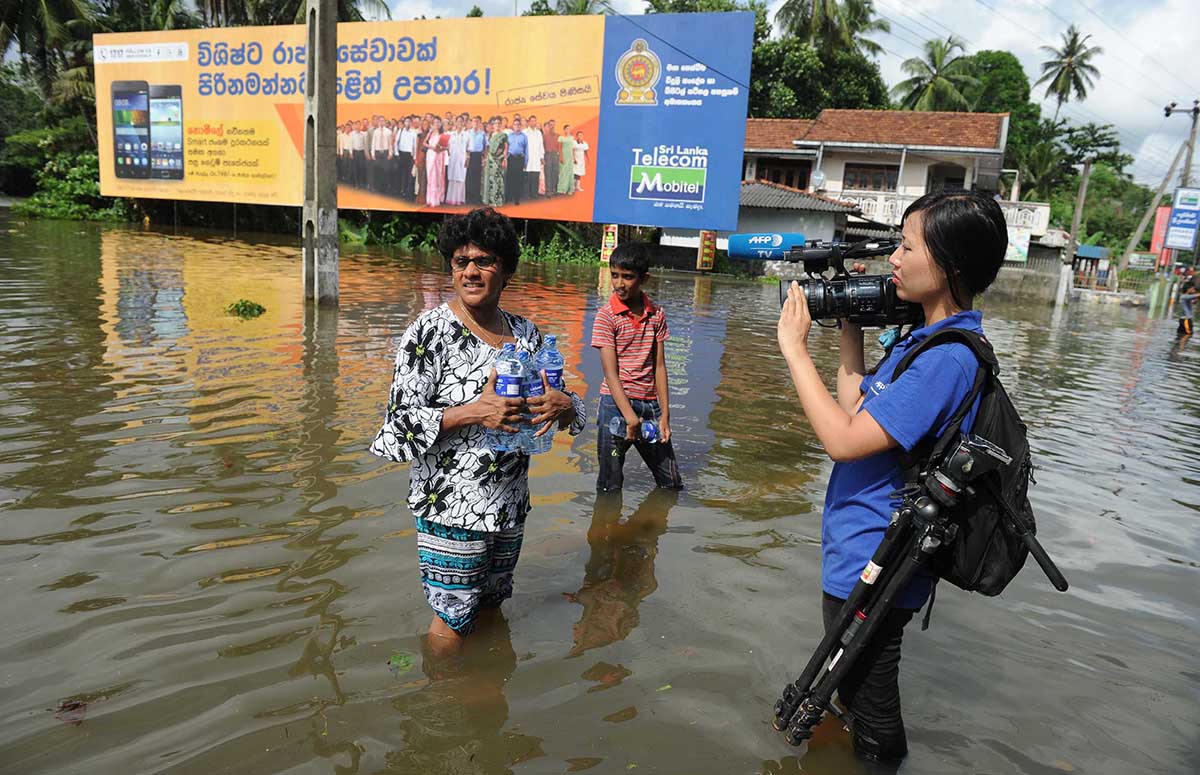
As a guileless collection of scenes, There’s No Poetry in a Typhoon is both gut-wrenching and lovely. The journalists on the front lines in warzones and natural disasters don’t retire to luxury trailers at night to pen their reports over crudités and a cool glass of Riesling. They are often hungry, thirsty, and covered in dust and bugs; they sleep fitfully and use fields as bathrooms, redolent with the stench of human waste due to a lack of functioning sanitation; they wade through murky waist-deep waters for a shot and count the bullet holes in the walls that might have ended their lives had they arrived just minutes earlier; they are cut and bruised and fearful of kidnap and rape; they see the abandoned corpses of dead children. But they also bring us pockets of dignity from among the rubble, and stories of the constant and persistent will to survive.
While we can turn away from Agnès Bun’s work if we wish to do so, Bun and her colleagues don’t enjoy the same luxury. They keep shooting so as to bear witness to stories that would otherwise remain unheard and unseen. Sometimes, however, Bun has found the responsibility to report in conflict with her keen sensitivity to the human need for dignity. “In the Philippines a woman was screaming at us for filming their misery, as though we were using them. I shut my camera off.”
Bun had arrived in the Philippines after the scourge of Typhoon Haiyan, and she was unprepared for the tropical heat and the spectacle of broiling human suffering. Her supervisors had given her only a few hours to get to the airport, and she hadn’t packed well. “I had no sunscreen and carrying the heavy camera equipment around on my burned shoulders cut into my skin. At one point, before having to walk several miles to another site, I gave my water bottles to a little boy who was dehydrated.” By the time she arrived at her next location, she was dehydrated herself, her lips and throat burning. But after a scolding from her colleagues, she could only think, “But he was dying of thirst.” In situations like these, she seems torn by her responsibility to look after herself and the responsibility she feels for others: “I realize that if I starve or dehydrate myself, it helps no one, but I can’t just watch it happen.”
She describes her time in India as the moment she found her “invincible summer,” a reference to Albert Camus. The full quote offers an apt description of the tenacity and courage of disaster journalists. “In the midst of winter, I found there was, within me, an invincible summer. And that makes me happy. For it says that no matter how hard the world pushed against me, within me, there’s something stronger—something better, pushing right back.”
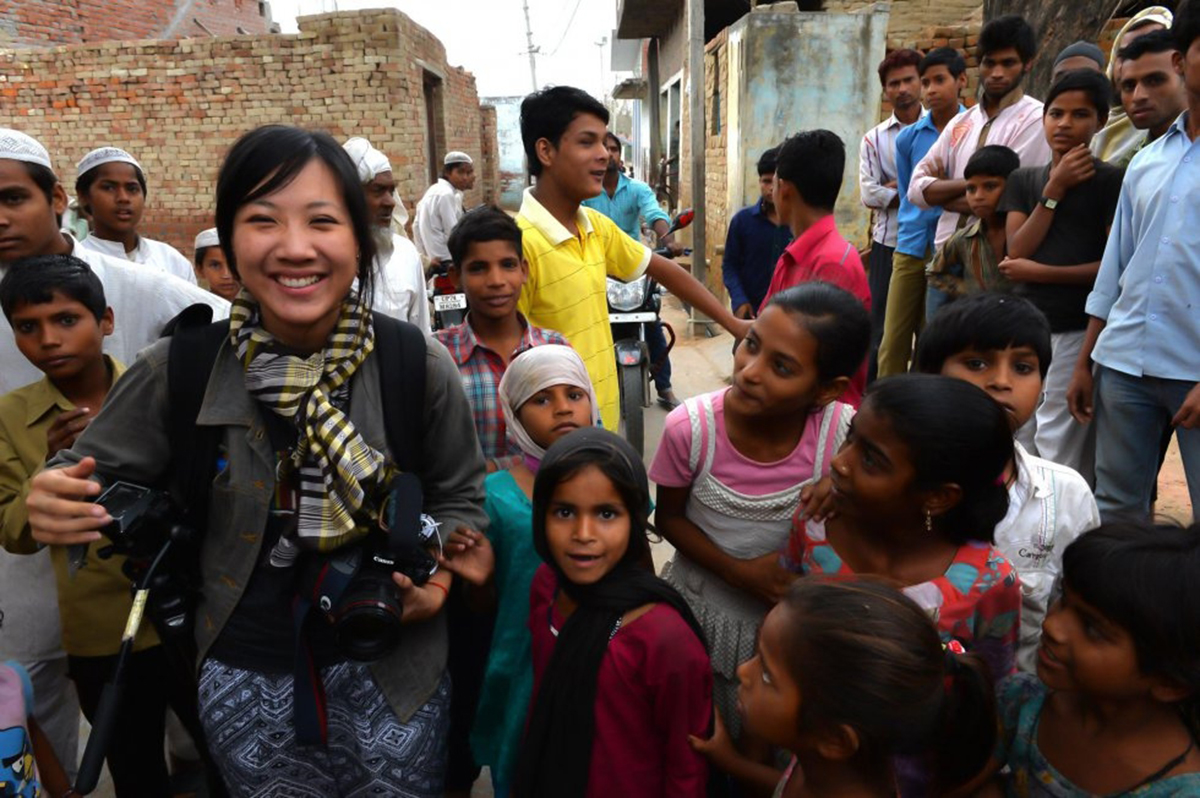
What Agnès Bun does for a living is remarkable. We need people like her; the reporter, the photojournalist videotaping the broken survivors of an earthquake, or filming the fearful smiles of a young mother who has given birth in the aftermath of a typhoon. Sometimes we need her simply to offer a kind human face to those tyranny and circumstance have left wretched and terrified. Her work reminds us that life is complicated. It can be tragic, jubilant, horrifying, and mesmerizing. No matter how desperate things get, summer will eventually and inevitably return for those who survive the punishments of winter. Those survivors must get on with living, and they need people with the courage and humanity to tell their stories.

“I worry I have not helped enough people,” she confesses. “Sometimes I feel useless. I don’t save lives the way doctors or NGO workers do in the field.”
I’m not sure I agree. None of those who tell the stories of the disenfranchised and dispossessed will ever truly know the effects of their reporting. Holocaust survivor Viktor Frankl once said those who survived the death camps were able to do so because they had a compelling vision of the future. When Agnès Bun turns on her camera, it gives her subjects hope that their stories will be heard and that there are people who care, and those hopes are essential to any future vision that might sustain them through hardship.
We read her work in the certain knowledge that past tragedies will be repeated in one form or another. As for Agnès Bun, her future is guided by wisdom beyond her years and faith in her principles. “If the opportunity ever comes up again to give a child my water bottle, even though I know it’s stupid, that it might hurt me, I’ll give it to him. If I ever don’t do it, I will no longer do this job because it means something has broken inside of me.”






